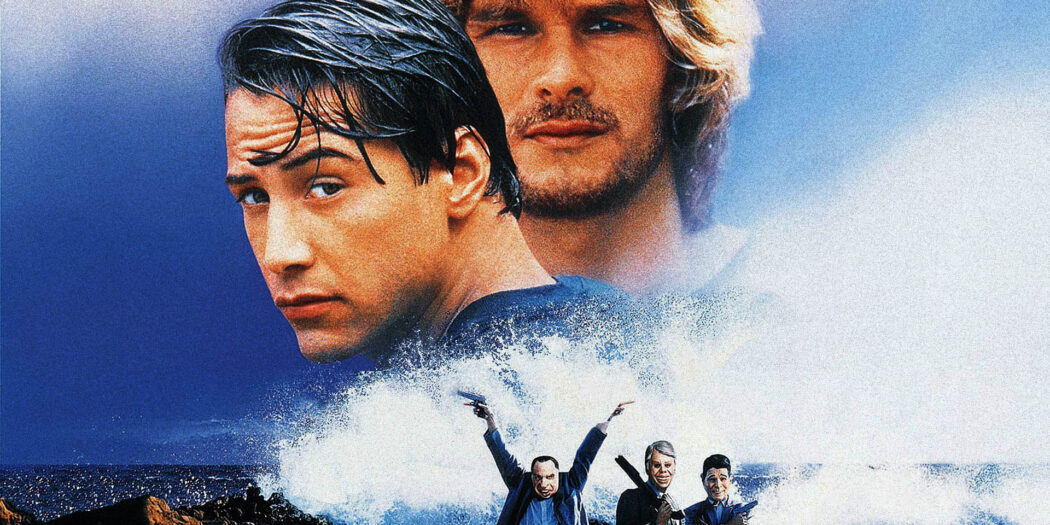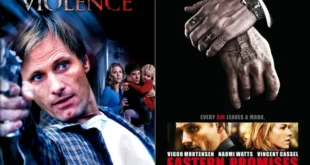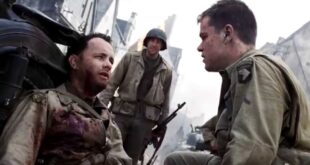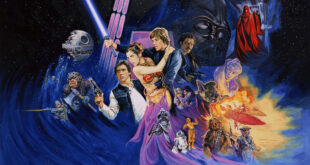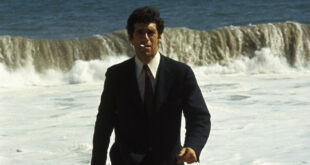Point Break is one of those rare sublime films that are enjoyable and transcendent. Far from the mindless action cinema that preceded it a decade earlier in the 80s, Kathryn Bigelow’s film has themes and depth and is trying to pose interesting questions. Indeed, Point Break incorporates elements that challenge traditional notions of masculinity and critique American politics. The film presents a shift away from the hyper-masculine ’80s machismo that often dominated action movies of that era. Instead, it explores a different type of masculinity, one that is connected to nature, freedom, and the pursuit of personal fulfillment. It is rife with moral ambiguity, presenting characters and situations that challenge simplistic notions of right and wrong and intentionally blurring the lines between hero and villain, exploring the complexities of human nature and the moral gray areas within society. Besides that, Point Break is also one of the most enjoyably watchable action movies ever.
The plot of Point Break revolves around Johnny Utah (Keanu Reeves), a rookie FBI agent and former athlete who dives undercover to expose a daring group of surfers suspected to be the infamous bank robbers known as the ‘Ex-Presidents.’ Led by the philosophical and charismatic Bodhi (Patrick Swayze), the gang executes their audacious heists while concealing their identities behind the masks of former U.S. Presidents. As Utah infiltrates their world, he becomes swept up in their adrenaline-charged surfing, skydiving, and thrill-seeking lifestyle. Along the way, he forms a complicated bond with Bodhi and kindles a romance with Tyler Endicott (Lori Petty), Bodhi’s former lover. When Utah’s cover is inevitably exposed, it sets off a chain of high-stakes events, including intense shootouts and dramatic skydiving sequences, climaxing with a showdown amidst the legendary 50-year storm. Struggling with his loyalty between his duty and his new friends, Utah is forced to reassess his values and the system he has sworn to uphold. Along the way with Utah is veteran FBI agent Angelo Pappas (an enjoyable Gary Busey), known for his eccentric personality and unorthodox methods.
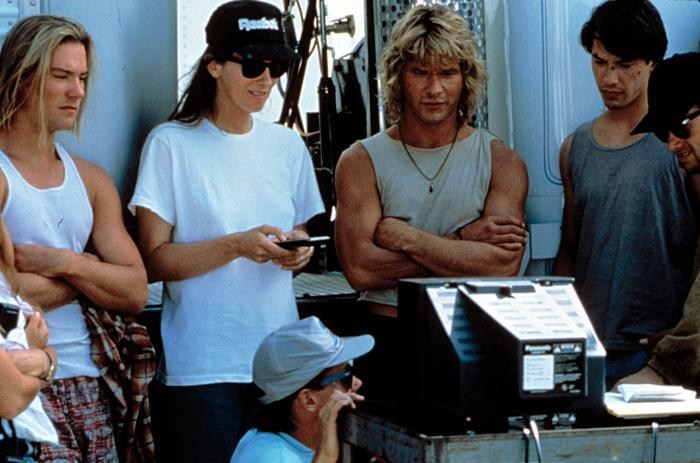
Kathryn Bigelow is renowned for her ability to capture and portray adrenaline-fueled moments in her films. With a keen eye for action and a talent for creating intense cinematic experiences, Bigelow has become synonymous with high-octane sequences that keep audiences on edge. From the heart-pounding bank robbery scenes in Point Break to the fierce war scenarios in The Hurt Locker, Bigelow’s films are characterized by their visceral and exhilarating portrayals of adrenaline-inducing moments. She skillfully combines meticulous direction, dynamic camerawork, and immersive storytelling to create a sense of heightened tension and excitement. Another film I like is Strange Days, which I plan on doing an Unsung Cinema in the future.
As I mentioned, moral ambiguity is a significant part of the film. There are no clear-cut good guys vs. bad guys. Lori Petty’s Tyler acts as a love interest (and she brings a different energy to a kind of thankless role), disguising that the film is about Bodhi and Utah. Is Bodhi a villain? His character is intentionally crafted to blur the lines between hero and villain, contributing to his portrayal’s complexity. While Bodhi is involved in criminal activities and his actions endanger the lives of others, his motivations and ideals add layers of nuance to his character. He’s morally complex and a bit of a paradox. He’s against the system that crushes lives, as he says, but he’s also reckless and dangerous. Patrick Swayze’s performance was excellent because he captures what is so magnetic about Bodhi yet underneath a complex rage against the system.
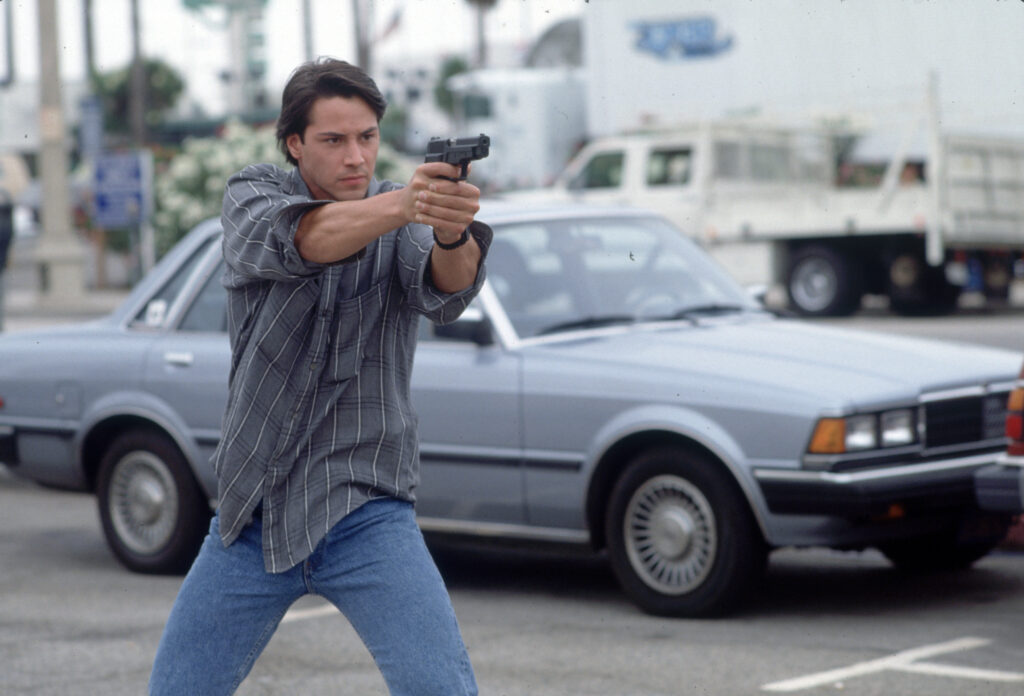
Then again, Utah is far from the perfect hero. He’s impulsive and manipulative. Lying about his parents dying, even under the guise of an undercover agent, is pretty low. Full of piss and vinegar, as FBI Director Ben Harp (John C. McGinley) says, Utah is impulsive and, like Bodhi, reckless. He’s easily manipulated and smitten by Bodhi and their lifestyle, but he will gleefully blow his cover and put innocent people at risk. He’s overconfident, and Bodhi uses that against him later in the film.
Keanu Reeves brings a unique softness and vulnerability to his portrayal of Johnny Utah in Point Break, setting him apart from the rugged action heroes of the ’80s like Stallone and Schwarzenegger. Reeves taps into the emotional depth reminiscent of Mel Gibson’s character in Lethal Weapon and Bruce Willis’s John McClane in Die Hard, trading in wisecracks for genuine sincerity. His performance adds a touch of campiness, subtly parodying traditional masculinity, which gradually softens as his character evolves throughout the film. This contrasts sharply with the high-strung masculinity embodied by John C. McGinley’s character, Ben Harp. Point Break takes pleasure in showcasing male beauty, celebrating its characters’ physical allure and aesthetics of male characters.
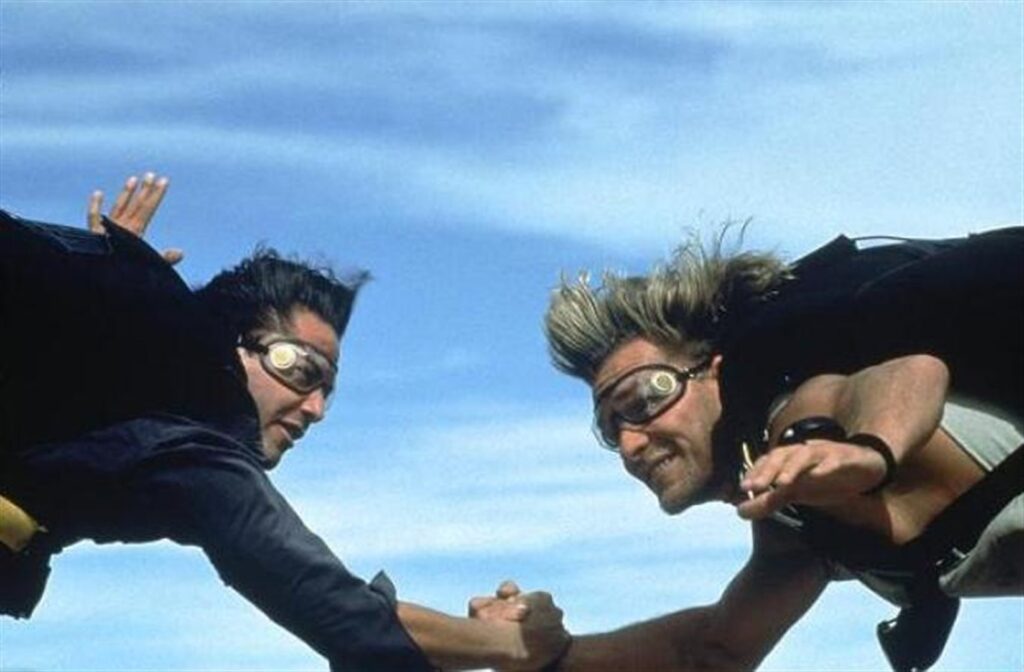
After all, besides all the spectacular action scenes and stunts, Point Break is a love story between two male characters, Bodhi and Johnny Utah. Before you roll your eyes at me, this is precisely how Patrick Swayze wanted to play it, according to his interviews. Despite discovering that Johnny is an FBI agent, Bodhi displays remarkable trust and acceptance toward him. This is evident when Bodhi includes Johnny in his tight-knit surf tribe, forging a deep bond and pushing the boundaries of their relationship. The ultimate demonstration of trust comes in skydiving, an act that Bodhi describes as “the closest you’ll ever get to God.” Bodhi’s decision to include Johnny in such an intimate and exhilarating experience symbolizes his profound belief in Johnny’s character and potential. It signifies Bodhi’s willingness to embrace Johnny fully, despite the risks and conflicts that their respective roles create. It’s truly a remarkable scene and comes at a time of great tension in the film.
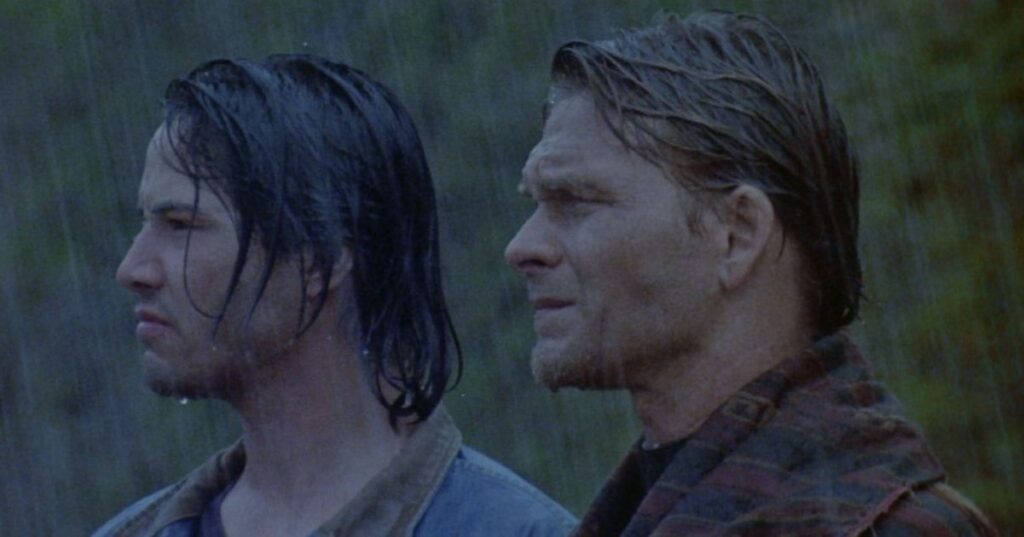
Point Break is a Western with surfboards and skydiving. While cowboys seek to conquer and dominate, surfers strive to connect with and surrender to the unbridled forces of nature. The film climaxes when Johnny Utah discovers Bodhi on an Australian beach just as the legendary 50-year storm approaches, a rare event that humbles humanity’s sense of significance. Throughout the narrative, Johnny has relentlessly pursued Bodhi, leading to their final confrontation amidst the tumultuous storm. In a pivotal moment, Johnny handcuffs himself to Bodhi as law enforcement closes in. However, he honors Bodhi’s request to ride one last wave, granting him freedom. Bodhi’s presence in the ocean enhances its splendor. Deep in thought, Johnny gazes at his badge before defiantly discarding it into the depths, reminiscent of a scene from Dirty Harry where a badge is similarly discarded. Johnny’s middle finger symbolizes a rejection of oppressive machismo, rules, control, and law enforcement. By relinquishing his badge, he embarks on a path of self-discovery, gaining a newfound sense of identity and awakening his soul to new possibilities.
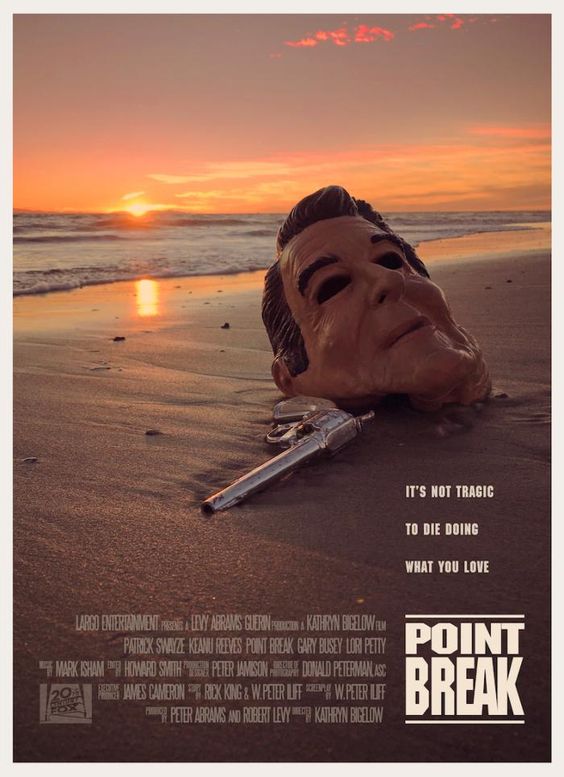
 Movie Finatics The Place for Movie Lovers
Movie Finatics The Place for Movie Lovers
